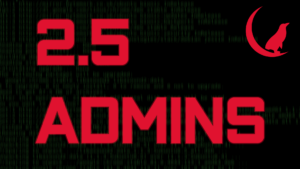
 2.5 Admins
2.5 Admins 2.5 Admins 222: Surprise Upgrade
Nov 21, 2024
Unexpected Windows Server upgrades are causing quite a stir among system admins, revealing issues with mislabeling and lack of rollback options. The discussion also dives into Microsoft's new Cloud PC device and the thin client concept. Navigating friend-based data backups presents its own set of challenges, focusing on trust and maintenance. Advice on using ZFS permission delegation enhances security during data management. Plus, insights on the disconnect between management expectations and the technical struggles faced by admins make for an engaging listen.
Chapters
Transcript
Episode notes

